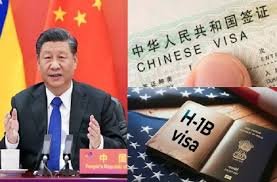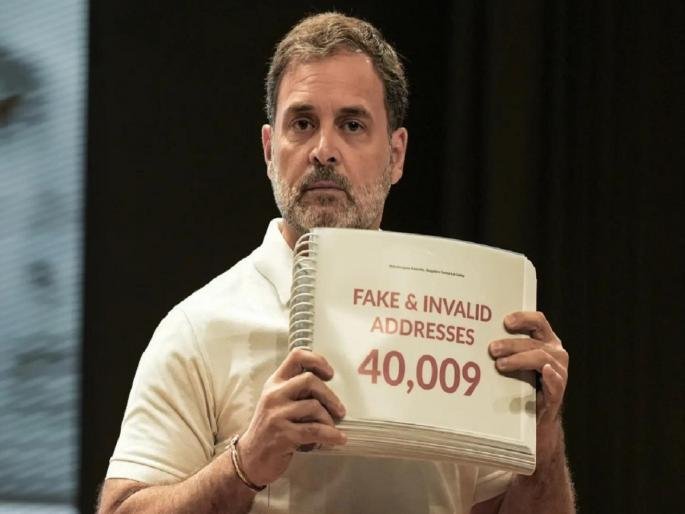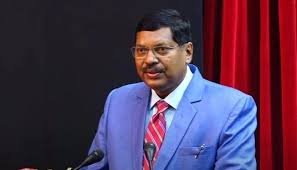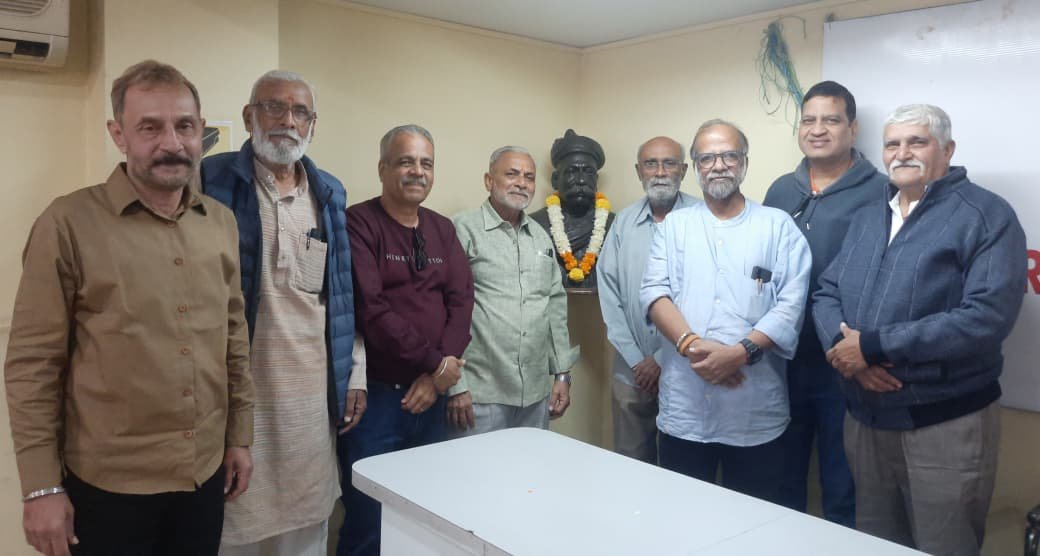
China's 'K-Visa' policy; Opens new doors for skilled workers in response to Trump's H-1B ban
Beijing/Washington: China has now taken a significant step in the competition for human resources in the global economy. After the US Donald Trump administration tightened the H-1B visa policy and created obstacles for skilled foreign workers, China has announced a new scheme called 'K-Visa'. This scheme opens up easier ways for skilled workers to enter and work in China. This scheme will be an alternative opportunity, especially for professionals in the technology, engineering and innovation sectors. Experts believe that this 'game' of China in response to the restrictive policies of the US will bring a new turn in the global talent market.
Background of Trump's H-1B policy
During Donald Trump's presidency (2017-2021), the US tightened the H-1B visa rules for foreign workers. The H-1B visa is primarily for highly educated and skilled professionals, with a large proportion of Indian and Chinese engineers, software developers, and researchers. The Trump administration has made some significant changes to it: increasing visa fees, imposing minimum wage requirements, and capping annual quotas. This has made it harder for many skilled workers to find jobs in the United States. For example, in 2018, a minimum wage guarantee was made for H-1B visa applicants, making it more expensive for companies to hire foreign workers. This has directly affected millions of Indian and Chinese professionals in fulfilling their American dream. The Trump administration has added the concept of 'American Jobs First' to these policies. According to them, foreign workers were putting American jobs at risk. However, according to experts, this policy has been a blow to the US technology sector. Companies like Google and Microsoft have found it difficult to find skilled workers, and this is feared to reduce America's innovation capacity. Now, in the wake of Trump's possible second term (after the 2024 election), this policy is likely to be tightened again, which will benefit countries like China.
China's 'K-Visa' scheme: What's special?
China's recently announced 'K-Visa' scheme is designed to attract global talent. The scheme is specifically for highly educated and skilled professionals, including experts in the fields of AI, semiconductors, 5G technology and biotechnology. Key features of the K-Visa include:
Easy application process: Instead of the complicated process like the US H-1B, the K-Visa application will be completed online and in a fast process. The Chinese government has launched a special portal for this.
Work permit facilities: Work permit will be available immediately after obtaining the visa, and family members will be allowed to accompany them.
Tax incentives and other incentives: Skilled workers will be provided with tax incentives, accommodation and education facilities. For example, special 'talent zones' will be set up in cities like Shanghai or Beijing.
Long-term stay: Initially a 2-year visa, which can be extended to 5 years. This will give professionals the opportunity to settle in China for a long time.
According to the Chinese government, the scheme is part of the 'Made in China 2025' campaign, which aims to make the country a global technology leader. In 2024, China invited more than 100,000 foreign experts, and the K-visa is expected to double this number.
Political and economic context
The scheme is not only economic, but also political. In the wake of the US-China trade war, Trump's policies have trapped Chinese workers in the US. Now China is taking the lead in the 'talent war'. The Chinese Foreign Ministry has said, "We welcome global talents, who will become partners in our development." On the contrary, American experts say that the policy will reduce China's dominance in the US innovation market.
This is also important for India. More than 70,000 Indians apply for H-1B every year, but only 20 percent are successful. The Chinese K-visa may now be available, which will increase the chances of Indian professionals getting jobs in China. However, there are doubts whether this will be fully realized due to language and cultural barriers.
Global impact and future prospects
The arrival of the K-visa will change the global labor market. The US will now have to simplify its policy, otherwise talent will turn to China. Countries like Europe and Canada may also change their visa policies. According to experts, "China has responded to Trump's H-1B war with the K-visa. This is a new era of global competition."
These steps by China are indicative of their economic giant growth. By 2025, China will become the world's largest economy, and the K-visa will add value to it. However, caution is needed as to whether it could increase geopolitical tensions.
Beijing/Washington: China has now taken a significant step in the competition for human resources in the global economy. After the US Donald Trump administration tightened the H-1B visa policy and created obstacles for skilled foreign workers, China has announced a new scheme called 'K-Visa'. This scheme opens up easier ways for skilled workers to enter and work in China. This scheme will be an alternative opportunity, especially for professionals in the technology, engineering and innovation sectors. Experts believe that this 'game' of China in response to the restrictive policies of the US will bring a new turn in the global talent market.
Background of Trump's H-1B policy
During Donald Trump's presidency (2017-2021), the US tightened the H-1B visa rules for foreign workers. The H-1B visa is primarily for highly educated and skilled professionals, with a large proportion of Indian and Chinese engineers, software developers, and researchers. The Trump administration has made some significant changes to it: increasing visa fees, imposing minimum wage requirements, and capping annual quotas. This has made it harder for many skilled workers to find jobs in the United States. For example, in 2018, a minimum wage guarantee was made for H-1B visa applicants, making it more expensive for companies to hire foreign workers. This has directly affected millions of Indian and Chinese professionals in fulfilling their American dream. The Trump administration has added the concept of 'American Jobs First' to these policies. According to them, foreign workers were putting American jobs at risk. However, according to experts, this policy has been a blow to the US technology sector. Companies like Google and Microsoft have found it difficult to find skilled workers, and this is feared to reduce America's innovation capacity. Now, in the wake of Trump's possible second term (after the 2024 election), this policy is likely to be tightened again, which will benefit countries like China.
China's 'K-Visa' scheme: What's special?
China's recently announced 'K-Visa' scheme is designed to attract global talent. The scheme is specifically for highly educated and skilled professionals, including experts in the fields of AI, semiconductors, 5G technology and biotechnology. Key features of the K-Visa include:
Easy application process: Instead of the complicated process like the US H-1B, the K-Visa application will be completed online and in a fast process. The Chinese government has launched a special portal for this.
Work permit facilities: Work permit will be available immediately after obtaining the visa, and family members will be allowed to accompany them.
Tax incentives and other incentives: Skilled workers will be provided with tax incentives, accommodation and education facilities. For example, special 'talent zones' will be set up in cities like Shanghai or Beijing.
Long-term stay: Initially a 2-year visa, which can be extended to 5 years. This will give professionals the opportunity to settle in China for a long time.
According to the Chinese government, the scheme is part of the 'Made in China 2025' campaign, which aims to make the country a global technology leader. In 2024, China invited more than 100,000 foreign experts, and the K-visa is expected to double this number.
Political and economic context
The scheme is not only economic, but also political. In the wake of the US-China trade war, Trump's policies have trapped Chinese workers in the US. Now China is taking the lead in the 'talent war'. The Chinese Foreign Ministry has said, "We welcome global talents, who will become partners in our development." On the contrary, American experts say that the policy will reduce China's dominance in the US innovation market.
This is also important for India. More than 70,000 Indians apply for H-1B every year, but only 20 percent are successful. The Chinese K-visa may now be available, which will increase the chances of Indian professionals getting jobs in China. However, there are doubts whether this will be fully realized due to language and cultural barriers.
Global impact and future prospects
The arrival of the K-visa will change the global labor market. The US will now have to simplify its policy, otherwise talent will turn to China. Countries like Europe and Canada may also change their visa policies. According to experts, "China has responded to Trump's H-1B war with the K-visa. This is a new era of global competition."
These steps by China are indicative of their economic giant growth. By 2025, China will become the world's largest economy, and the K-visa will add value to it. However, caution is needed as to whether it could increase geopolitical tensions.
Background of Trump's H-1B policy
During Donald Trump's presidency (2017-2021), the US tightened the H-1B visa rules for foreign workers. The H-1B visa is primarily for highly educated and skilled professionals, with a large proportion of Indian and Chinese engineers, software developers, and researchers. The Trump administration has made some significant changes to it: increasing visa fees, imposing minimum wage requirements, and capping annual quotas. This has made it harder for many skilled workers to find jobs in the United States. For example, in 2018, a minimum wage guarantee was made for H-1B visa applicants, making it more expensive for companies to hire foreign workers. This has directly affected millions of Indian and Chinese professionals in fulfilling their American dream. The Trump administration has added the concept of 'American Jobs First' to these policies. According to them, foreign workers were putting American jobs at risk. However, according to experts, this policy has been a blow to the US technology sector. Companies like Google and Microsoft have found it difficult to find skilled workers, and this is feared to reduce America's innovation capacity. Now, in the wake of Trump's possible second term (after the 2024 election), this policy is likely to be tightened again, which will benefit countries like China.
China's 'K-Visa' scheme: What's special?
China's recently announced 'K-Visa' scheme is designed to attract global talent. The scheme is specifically for highly educated and skilled professionals, including experts in the fields of AI, semiconductors, 5G technology and biotechnology. Key features of the K-Visa include:
Easy application process: Instead of the complicated process like the US H-1B, the K-Visa application will be completed online and in a fast process. The Chinese government has launched a special portal for this.
Work permit facilities: Work permit will be available immediately after obtaining the visa, and family members will be allowed to accompany them.
Tax incentives and other incentives: Skilled workers will be provided with tax incentives, accommodation and education facilities. For example, special 'talent zones' will be set up in cities like Shanghai or Beijing.
Long-term stay: Initially a 2-year visa, which can be extended to 5 years. This will give professionals the opportunity to settle in China for a long time.
According to the Chinese government, the scheme is part of the 'Made in China 2025' campaign, which aims to make the country a global technology leader. In 2024, China invited more than 100,000 foreign experts, and the K-visa is expected to double this number.
Political and economic context
The scheme is not only economic, but also political. In the wake of the US-China trade war, Trump's policies have trapped Chinese workers in the US. Now China is taking the lead in the 'talent war'. The Chinese Foreign Ministry has said, "We welcome global talents, who will become partners in our development." On the contrary, American experts say that the policy will reduce China's dominance in the US innovation market.
This is also important for India. More than 70,000 Indians apply for H-1B every year, but only 20 percent are successful. The Chinese K-visa may now be available, which will increase the chances of Indian professionals getting jobs in China. However, there are doubts whether this will be fully realized due to language and cultural barriers.
Global impact and future prospects
The arrival of the K-visa will change the global labor market. The US will now have to simplify its policy, otherwise talent will turn to China. Countries like Europe and Canada may also change their visa policies. According to experts, "China has responded to Trump's H-1B war with the K-visa. This is a new era of global competition."
These steps by China are indicative of their economic giant growth. By 2025, China will become the world's largest economy, and the K-visa will add value to it. However, caution is needed as to whether it could increase geopolitical tensions.

.jpg)
















